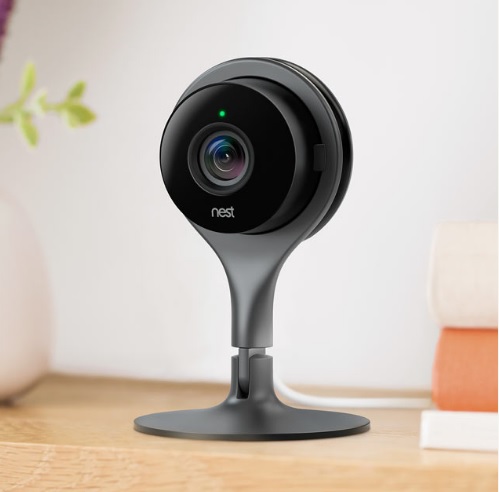

Google’s Nest smart surveillance camera has a bug in its firmware that enables burglars to disrupt the feed from being recorded by establishing a Bluetooth connection.
The vulnerability in the software enables savvy crooks to trigger a buffer overflow whereby a program writing data to a memory buffer overruns it’s boundaries and overwrites adjacent memory, in the SSID parameters of the camera when in Bluetooth range.
This has the effect of knocking the Nest camera off the Wi-Fi network it is connected to for 90 seconds, essentially severing its ability to record video feed for a small window of time which burglars can exploit to gain unspotted access to a property. The attack can be repeated, so criminals can keep the camera off the network while they search a property for valuables.
The current Nest cameras affected by the bug include the Dropcam, Dropcam Pro, Nest Cam Indoor/Outdoor models running the firmware version 5.2.1.
Doyle had reported the bug to Google last year, but he told The Register that as he was not convinced it had been patched he published the details of the bug on GiHub.
The worrying thing about the bug is the inability to shut off the camera’s Bluetooth connection, meaning users aware of the flaw can do little to combat against it.
Nest has now patched the flaw with a spokesperson from the company telling Silicon : “All Nest camera customers now have the updated software. To our knowledge, no customer’s camera was ever affected by this issue and customer video remained safe. This isn’t the first time we’ve updated our security measures, and it won’t be the last, as we continue to look for ways to improve our products, such as the introduction of two-factor authentication last month.”
The rise of the Internet of Things (IoT) is making an increasing amount of object smarter and more connected, but with that comes the risk of being hacked or exploited. Unfortunately, cyber security in such devices has yet to be standardised and is often incorporated as an afterthought.
The nest big is yet another example of the security risks such smart devices can bring. Now that is not to say businesses and society should rally against the adoption of IoT tech, but people and companies looking at making their homes and offices smart would be wise to ensure enough thought is given to cyber security.
American space agency prepares for testing of Boeing's Starliner, to ensure it has two space…
As UK and Europe develop closer military ties, European Commission says it will invest €1.3…
Zuckerberg seeks to revive Facebook's original spirit, as Meta launches Facebook Friends tab, so users…
Notable development for Meta, after appeal against 2021 WhatsApp privacy fine is backed by advisor…
First sign of shake-up under new CEO Lip-Bu Tan? Three Intel board members confirm they…
Trump's nominee for SEC Chairman, Paul Atkins, has pledged a “rational, coherent, and principled approach”…